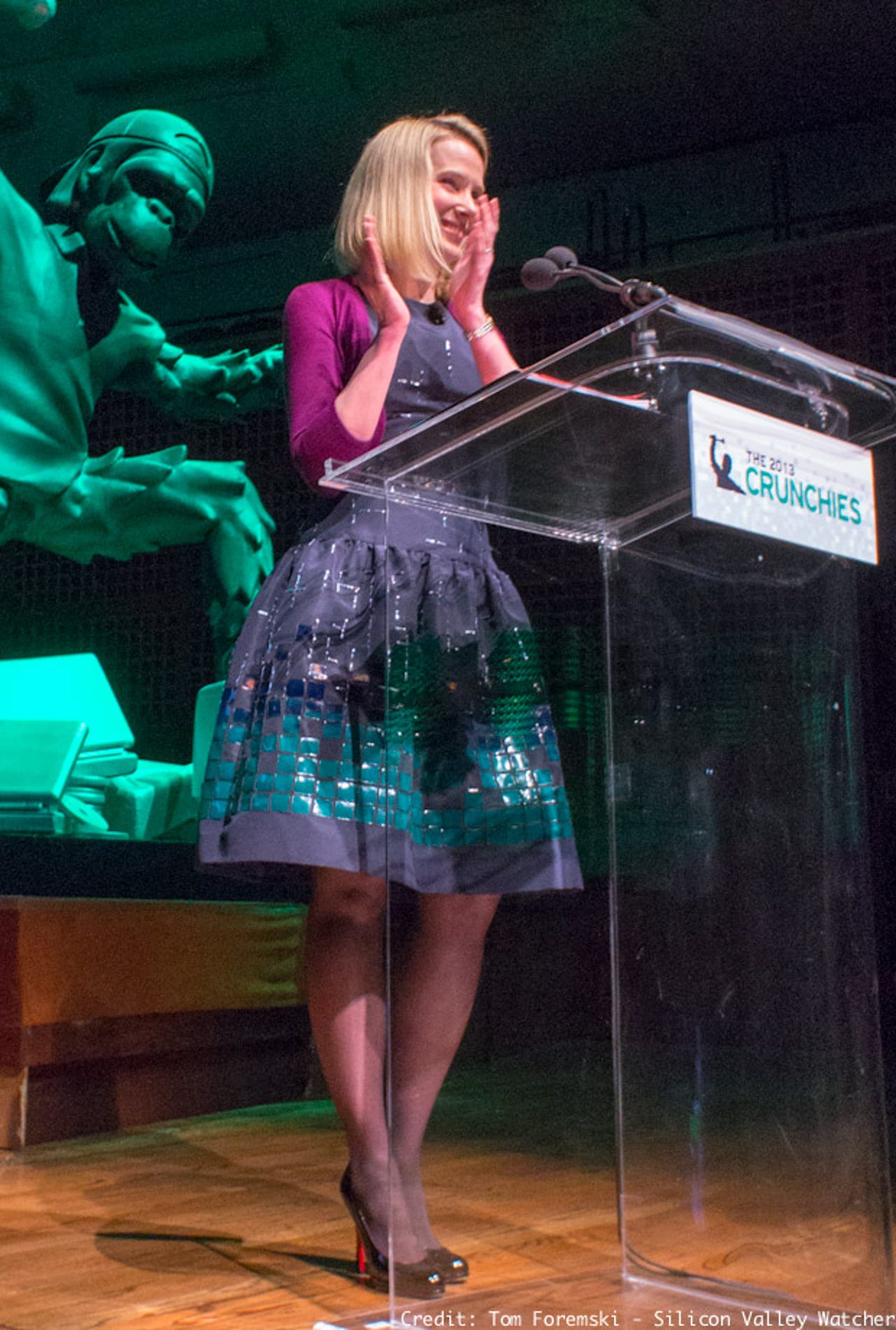On Yahoo's 20th anniversary CEO Mayer counts her achievements


Marissa Mayer, CEO of Yahoo, at the Crunchies 2013 Awards in San Francisco
Steven Levy on Medium's Backchannel, has an exclusive interview with Marissa Mayer, CEO of Yahoo, to mark the 20th anniversary of Yahoo and celebrate some of her achievements:
Despite a lift in employee spirits and stock price--Yahoo shares are about triple their value at the summer of 2012, when Mayer joined--her detractors are charging that it's too little too late...
Yahoo is marking its 20th anniversary, and Mayer wants the event to be seen as more celebration than wake. And after fending off wonkish calculations that the entire worth of her company was owed to its $40 billion share of the Chinese e-commerce giant Alibaba...
Marissa Mayer Has Completed Step One -- Backchannel -- Medium
Levy, a former senior writer at Wired, runs through Yahoo's history, speaking with founders Jerry Yang and David Filo. Yang told him, "We all had dreams and ambitions. But it wasn't obvious to anyone, even ourselves, how big the Internet would be."
Yahoo had many missed opportunities: it decided to license search from Google instead of buying the company; a deal to buy Facebook fell through after it tried to renegotiate a lower price. It had opportunities to buy Youtube, Twitter, and LinkedIn. But it did buy 40% of a young Alibaba.
Mayer was the fifth CEO in 12 months when she joined in July 2012.
"We really needed to build ourselves a future," she says.
She went about this with none of the confusion that racked her predecessors over whether Yahoo was a tech company or media company. She was a product person and wanted people who were going to build products for Yahoo.
She focused on mobile products, and was shocked Yahoo only had 50 engineers working on mobile apps. She began acquiring companies to build up mobile products. And Levy says, she focused on native ads.
They reformat the assets an advertiser provides--text, images and maybe a button to buy something or head off to a link -- in the style of the "organic" content that people had initially come to view.
There's lots more details in Levy's article: Marissa Mayer Has Completed Step One -- Backchannel -- Medium
Foremski's Take: Yahoo realized it was a media company way too soon, and hired Terry Semel, a Hollywood executive, in 2001. It left a lot of engineering money on the table, which allowed Google, who had a very similar Stanford university founding story to Yang and Filo's, the opportunities to develop advanced search and other key technologies.
Google doesn't talk about being a media company (which it is) because it wouldn't be able to attract the engineering talent it needs; and because its growth in its early days required it to partner with large media companies, and they saw Google as a technology company and not a media competitor.
That's not true anymore: The New York Times, and Sir Martin Sorrell, head of the giant advertising and marketing firm WPP, for example, clearly view Google as a media company and a competitor. Better too late than never.
Mayer seems to have returned Yahoo to its engineering roots. But also, she has pushed Yahoo back into the media business for a third-time with the hire of well known media personalites such as David Pogue and Katie Couric, to build original content.
The problem with owning media, instead of pointing at it as Google does, is that sooner or later Yahoo's bean counters realize that investing in media talent is not as productive as investing in engineering, and the plug is pulled.
The work of a top engineer can be scaled across Yahoo's entire platform. But an article or video by David Pogue, who commands a salary that would pay for many top engineers, impacts a fraction of its platform and only for a day or two.
Or have things changed now? Will the recognition that Yahoo is a technology-enabled media company provide it with a competitive edge sharp enough to cut into the business of Google and Facebook?
We'll likely find out when Yahoo turns 21.